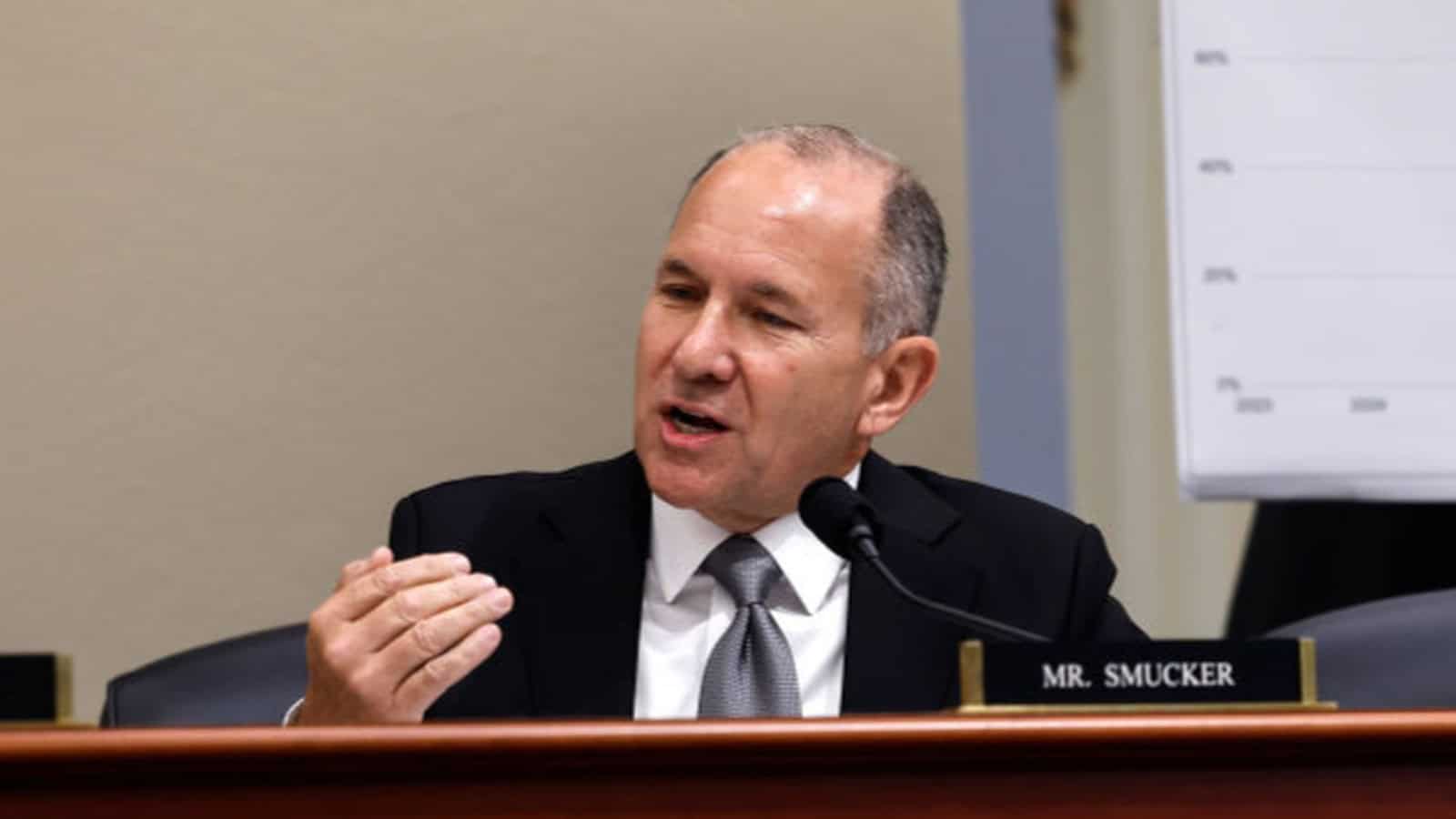NAM, Rep. Smucker Talk “Tax Armageddon”

Manufacturers face a tax cliff in 2025, but there is still time for Congress to prevent devastating tax increases. By acting before the end of next year, legislators can preserve the 2017 tax reform and ensure manufacturers can continue creating jobs and driving economic growth across the country.
What’s going on: As part of Manufacturing Wins, the NAM’s 2025 tax campaign, the NAM asked Rep. Lloyd Smucker (R-PA) for a download on what Congress is doing to prevent “Tax Armageddon” for manufacturers.
- Smucker, chair of the House Committee on Ways and Means’ recently formed Main Street Tax Team, is a champion of the Section 199A pass-through deduction, one of the manufacturing-critical provisions set to expire at the end of 2025.
- Pass-throughs are companies whose owners pay tax on the business’s income on their personal tax returns—and most small and medium-sized manufacturers are organized as pass-through entities.
- The loss of the pass-through deduction and an accompanying increase in individual tax rates—both scheduled for the end of 2025—would be a one-two punch for small manufacturers.
Below is the written interview.
NAM: Congress is facing a Tax Armageddon next year, as crucial provisions from 2017’s Tax Cuts and Jobs Act are set to expire. As the leader of the Ways and Means Main Street Tax Team, what is your focus moving into next year’s debate?
Smucker: The Main Street Tax Team is tasked with examining the areas of the tax code that impact main street businesses. Looking ahead to what parts of the code are set to expire in 2025, one of the most important provisions our team is focused on is extending the Section 199A deduction for pass-through businesses. This 20% deduction was enacted as a part of the Tax Cuts and Jobs Act and helped create tax parity for millions of American businesses with their larger corporate competitors while incentivizing reinvestment back into their business and employees.
If Congress does not act, Section 199A will expire at the end of 2025, and main street businesses could face a 43.4% tax rate. Our tax team is working to build awareness of the pending tax hike if Section 199A expires, while laying the groundwork for making this important provision permanent by hearing directly from businesses on the impact this deduction has had on their ability to grow and increase productivity.
NAM: Most small manufacturers are organized as pass-throughs, which means that they pay tax on their owners’ returns. The scheduled increase in individual tax rates combined with the loss of the pass-through deduction—a 20% deduction that lowers these companies’ tax obligations—will mean that these businesses are the hardest hit by the 2025 tax cliff. What is Congress doing to protect small businesses from tax hikes?
Smucker: To protect businesses from devastating tax hikes, the Ways and Means Committee has gone on the road holding field hearings throughout the nation to hear directly from small business owners about how the Tax Cuts and Jobs Act improved their ability to compete and grow. During these field hearings, we’ve heard from many businesses, including manufacturers, how the TCJA helped improve the quality of life of hardworking Americans. We’re continuing to use this model by having each tax team host at least one field event to reach more communities.
The Main Street Tax Team will be heading to my district in the coming weeks to hear from Pennsylvania businesses about the importance of preserving Section 199A. I also encourage NAM members across the U.S. to share with their representatives what this provision, and other parts of the tax code, mean for their business. The public can share information on the impact of higher taxes directly with my colleagues on the Ways and Means Committee too by visiting our public comment portal.
NAM: Pass-through manufacturers generally pay tax at the top individual tax rate—currently 37%—but this bracket is scheduled to increase to 39.6% next year. Is your team examining how these rates impact pass-through businesses?
Smucker: Yes, in addition to the field event, my team members and I will be meeting with stakeholders in each of our districts throughout the rest of this year to discuss the impact higher taxes will have on our constituent’s families, businesses and communities. My team will also be hosting several D.C.-based roundtables with tax experts and economists to examine the impact of changes to the code.
NAM: Thank you for being a champion for manufacturing pass-throughs across the country. What can our members do to stay involved and be a resource for your tax team’s work?
Smucker: Continue to share your stories about how Section 199A has helped your businesses, and how tax hikes would be harmful. I strongly encourage NAM members to invite their representatives for site visits to your businesses so they can see firsthand the benefits of a competitive tax code. Finally, I’d close with a request to have NAM members ask their representatives to cosponsor H.R. 4721, the Main Street Tax Certainty Act, my legislation to make Section 199A permanent. I am working to build as much backing as possible for the bill heading into our tax reform discussions next year to send a signal that preserving this deduction is important.
